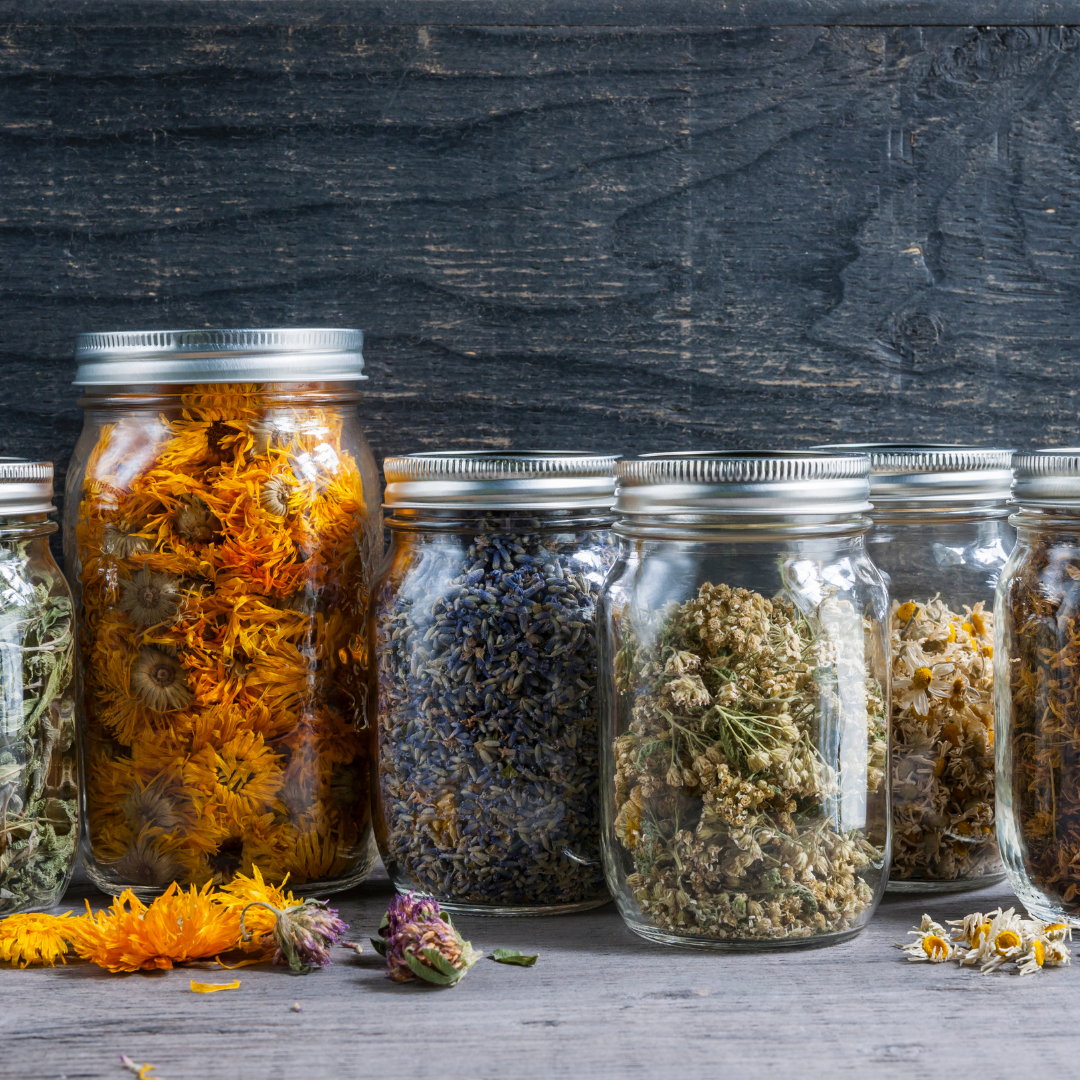Herbal medicine tends to get a bad rep because traditional modern medicine has made it irrelevant in todays society.
But we tend to forget that herbal medicine has been around since the beginning of time. Our ancestors knew a lot more about plants and the human body than traditional modern medicine gives them credit for.
The practice of herbalism is the collected wisdom of centuries of trial and error. That's thousands of years worth of studying, whereas modern medicine is just a little over 100 years old.
Mother Earth has provided us with everything we need to heal ourselves from common ailments to deadly diseases.
So let's first start with what exactly herbal medicine is, the benefits it can provide you and how you start implementing into your routine to get or to stay healthy.
What is Herbal Medicine?
So what is herbal medicine you ask? In short, it's a type of medicine that uses plants; roots, stems, leaves, flowers, or seeds to improve your overall health, treat illnesses and prevent diseases.
Benefits of Herbal Medicine
What benefits can herbal medicine bring to you? There is no doubt in my mind that modern medicine saves lives and can offer relief from chronic symptoms.
However, herbalism is making a come back into society due to conventional treatments starting to wane and the increased side effects from western medicine.
You see over the years infectious organisms have started to develop a resistance to our synthesized drugs and are not as effective as they once were.
Not to mention, an estimated 10-20% of hospital patients in the United States are there due to the side effects of traditional modern medicine.
Herbal medicine often complements conventional treatments, thus providing safe and well-tolerated remedies for chronic illnesses. Where, as of right now, there is no effective treatment yet for many chronic illnesses in the United States, such as asthma, arthritis, and IBS (irritable bowel syndrome).
Think about it, in the US we tend to just treat the symptoms without actually correcting the problem that is causing the symptom.
Our bodies are uniquely designed to tell us when something is wrong, that's what symptoms are for, it's a highly intelligent warning system.
And if we suppress those symptoms, with conventional modern medicine without finding the cause, then we are ignoring our own bodies warning system.
How Herbal Medicine Works
But how does herbal medicine work? Well, it's pretty simple, the fundamental basis of herbal medicine aka herbalism is energetics.
And energetics is how we categorize what herbs do and what your body needs.
You see, before laboratory testing people had to figure out a system to determine what was ailing their body and what actions needed to be taken to address it.
Over time, people learned to categorize those symptoms and those illnesses with senses such as hot or cold, damp or dry, tense or lax.
- HOT - inflamed, irritated tissue; fever and burns or anything that feels hot, agitated, or overly fast.
- COLD - slowness; circulation, digestion, or thought. Including depression, hypothyroidism or anything that feels cold.
- DAMP - over abundance of fluid anywhere in the body; edema, rheumatism in the joints, bloating or even a swollen sprained ankle.
- DRY - not enough fluid anywhere in the body; dry mouth, dry skin, "frayed" nerves.
- TENSE - over abundance of tightness anywhere in the body; muscle tension, headaches, pinched nerves.
- LAX - not enough tension anywhere in the body; diarrhea, wrinkled skin, or any kind of prolapse.
Using this energetic information you can easily choose the best herb for your situation, even if you don't know the exact medical term for what's going on in your body.
How to Implement Herbal Medicine
Implementing herbal medicine can get very complicated. So it's always best to start working with just one herb at a time, then build up to blending herbs together.
This will allow you to get to know the herb and learn how it reacts in your body.
Where To Get Herbs and Herbal Medicine?
Where you get your herbs and herbal medicine is important.
You always want to know exactly where your herbs are coming from and whether they are organic or not.
Herbs can be purchased at a local farmers market, possibly a health food store, online, or you can grow your own.
There are some larger herb retailers in the United States such as Mountain Rose Herbs that are known to have a good selection of certified organic herbs.
Also there are many herbalists, including myself who offer smaller batches of herbs for sale.
We also generally offer herbal blends, teas, tinctures and syrups for sale as well for people who don't have the time to make their herbal medicine themselves.
So if traditional modern medicine is not working for you then adding in herbal medicine may be just what your body needs.
